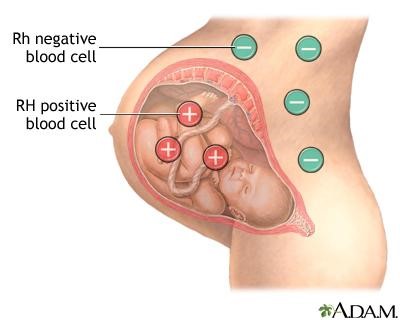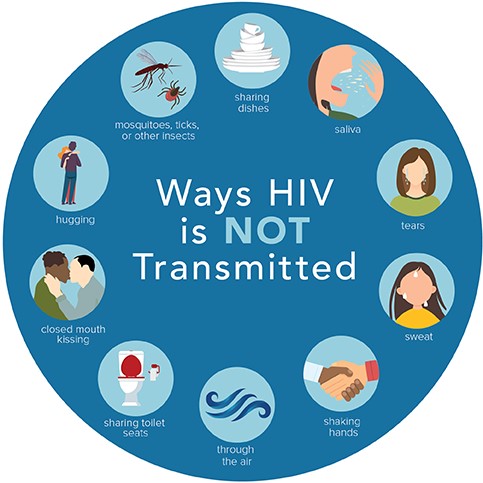It is determined that a client's blood Rh is negative and her partner's is positive. To help prevent Rh isoimmunization, the nurse would expect to administer Rho(D) immune globulin at which time?
24 hours before delivery and 24 hours after delivery
In the first trimester and within 2 hours of delivery
At 28 weeks gestation and again within 72 hours after delivery
At 32 weeks gestation and immediately before discharge
The Correct Answer is C
Choice A Reason: This is incorrect because administering Rho(D) immune globulin 24 hours before delivery is too early and may not provide adequate protection for the fetus. Administering it 24 hours after delivery is too late and may not prevent the mother from developing antibodies against the fetal Rh-positive blood cells.
Choice B Reason: This is incorrect because administering Rho(D) immune globulin in the first trimester is unnecessary and may not be effective, as the risk of Rh isoimmunization is very low before 28 weeks of gestation. Administering it within 2 hours of delivery is appropriate, but not sufficient, as it should be repeated within 72 hours after delivery.
Choice C Reason: This is correct because administering Rho(D) immune globulin at 28 weeks gestation and again within 72 hours after delivery is the recommended schedule for preventing Rh isoimmunization in Rh-negative pregnant women who have Rh-positive partners. This regimen can prevent up to 99% of cases of Rh isoimmunization by blocking the maternal immune response to the fetal Rh-positive blood cells.
Choice D Reason: This is incorrect because administering Rho(D) immune globulin at 32 weeks gestation is too late and may not prevent Rh isoimmunization if there has been any fetal-maternal hemorrhage before that time. Administering it immediately before discharge is also too late and may not prevent the mother from developing antibodies against the fetal Rh-positive blood cells.

Nursing Test Bank
Naxlex Comprehensive Predictor Exams
Related Questions
Correct Answer is C
Explanation
Choice A Reason: This is incorrect because mosquitoes do not transmit HIV. HIV is a virus that infects human cells and cannot survive in insects. Mosquitoes do not inject blood from one person to another when they bite, but only saliva that contains anticoagulants and enzymes.
Choice B Reason: This is incorrect because accidental puncture wounds are not a common mode of HIV transmission. HIV can be transmitted through exposure to infected blood or body fluids, such as through needle sharing, blood transfusion, or occupational injury. However, these cases are rare and can be prevented by using sterile equipment, screening blood products, and following universal precautions.
Choice C Reason: This is correct because sexual contact is the most common mode of HIV transmission. HIV can be transmitted through unprotected vaginal, anal, or oral sex with an infected person, as these activities can involve contact with infected blood, semen, vaginal fluid, or pre-ejaculate.
Choice D Reason: This is incorrect because respiratory droplets do not transmit HIV. HIV is not an airborne virus and cannot be spread by coughing, sneezing, or breathing. HIV cannot be transmitted by casual contact, such as hugging, kissing, or sharing utensils.

Correct Answer is D
Explanation
Choice A Reason: This is incorrect because Ortolani's sign is a test for hip dysplasia in infants, not a sign of pregnancy. It involves moving the infant's legs to check for a clicking sound in the hip joint.
Choice B Reason: This is incorrect because Chadwick's sign is a bluish or purplish discoloration of the cervix, vagina, and vulva during pregnancy, not a softening of the lower uterine segment. It is caused by increased blood flow to the pelvic area.
Choice C Reason: This is incorrect because Goodell's sign is a softening of the cervix during pregnancy, not a softening of the lower uterine segment. It is caused by increased vascularity and edema of the cervical tissue.
Choice D Reason: This is correct because Hegar's sign is a softening of the lower uterine segment or isthmus during pregnancy. It can be felt by bimanual examination around six to twelve weeks of gestation.
Whether you are a student looking to ace your exams or a practicing nurse seeking to enhance your expertise , our nursing education contents will empower you with the confidence and competence to make a difference in the lives of patients and become a respected leader in the healthcare field.
Visit Naxlex, invest in your future and unlock endless possibilities with our unparalleled nursing education contents today
Report Wrong Answer on the Current Question
Do you disagree with the answer? If yes, what is your expected answer? Explain.
Kindly be descriptive with the issue you are facing.
